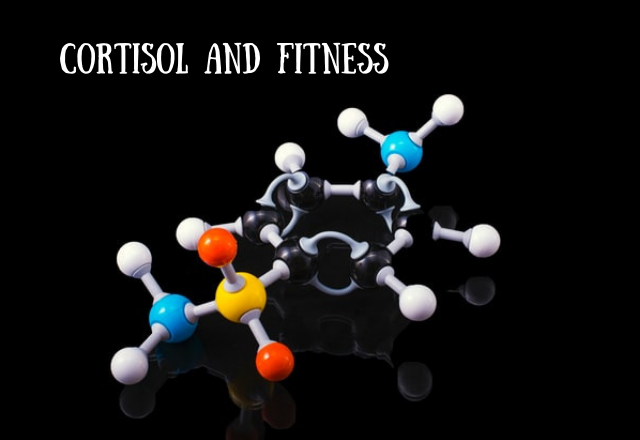Cortisol and Fitness

What is Cortisol and How Does This Affect Your Health?
Cortisol is a hormone which is released into the bloodstream as a response to stress. Cortisol is a glucocorticoid, a steroid hormone which is produced by the adrenal cortex and can cause a breakdown of proteins, fats and carbohydrates during times of high stress levels. As such, prolonged high cortisol levels can be very detrimental to your health, with serious long term consequences.
This guide to cortisol starts by detailing the reasons why cortisol is released into your bloodstream, before covering what happens in the short and long-term in response to this. You’ll find some suggestions as to how you can start reducing cortisol levels – improving your overall health and fitness.
Why Cortisol is Produced
The body is designed to react to stress with a ‘fight or flight’ response, a response which has served the human race very well for much of our existence. When in danger, this response has ensured a greater chance of survival over the millennia and has proved to be a highly efficient system.
This system works best in high level stress moments. If you’re standing in the middle of a road and a car is roaring towards you at 80 miles per hour, the flight response will kick in quickly and you’ll hopefully get out of the way. At this point, the adrenal cortex will produce cortisol and other vital mechanisms are effectively shut down, including the immune system, digestion and many other functions.
While this is exactly what you want in these ‘high stress’ situations, you won’t want to be producing cortisol on a regular basis. In today’s world however, many people suffer from prolonged ‘low level’ stress and the body deals with this situation with the same ‘fight or flight’ response. If for example, you’re stuck in traffic and late for a meeting, your stress levels will rise and cortisol will be released into your bloodstream. Many people can suffer from these low-level stresses almost constantly and this can have severe ramifications for your health.
The Health Consequences of Cortisol
Long term activation of this ‘fight or flight’ response and the over exposure to cortisol can have a number of effects on your health. Anxiety can be attributed to cortisol and prolonged untreated cases can lead to more serious conditions such as severe depression and bipolar disorder. Digestion problems and weight gain are also linked to excessive cortisol production, while it can also be the cause of memory and concentration impairment. Excessive Cortisol can also have a detrimental effect on your sleep as well as cause headaches.

How to Reduce Your Cortisol Levels
The first step in reducing cortisol levels is to identify the triggers which can increase the release of cortisol in the first place, so you can combat the effects.
Healthy Eating – Eating balanced meals which consist of protein, low GI carbohydrates and the right fats, alongside fruits and vegetables as a good source of macronutrients. Foods to avoid include sugar and refined (High GI) carbohydrates. Foods like sugar can cause spikes in insulin production, which in turn might create a natural response to stress, therefore causing cortisol to be produced. You should also aim to eat more regularly, up to 5 or 6 times a day. Cortisol levels increase when you have been without food for five hours, so smaller regular meals will work better than a couple of big meals during the day.
Water – Hydration is always an important factor in your health and dehydration can be another cause for an increase in your stress levels. Drink a glass of water first thing in the morning and it is suggested that between 6 and 8 glasses of fluid a day is a healthy amount.
Sleeping – Aim for a regular sleep pattern, where you are gaining around seven or eight hours sleep every night. In this world of electronic devices, turning these off an hour or two before sleep is always a good idea, while if these are necessary, a blue light filter can be an idea.
Exercise – Regular exercise is always a good idea, but prolonged exercise can have the opposite effect. After more than an hour of working out, the testosterone levels start to decline and the cortisol levels begin to increase. Regular workouts of less than an hour are perfect. Find the best home fitness equipment for your profile on this page!
Stimulants – There are a number of stimulants which you should avoid to keep those cortisol levels in check. One of the worst culprits for enhanced cortisol is caffeine which directly stimulates the adrenal glands and produces cortisol.
Stress Reduction Techniques – It has been proven that techniques such as meditation can reduce stress levels throughout the day. Using a technique such as meditation, yoga or massage as part of your daily routine will have a positive effect on your cortisol levels.
More Fitness Guides:


